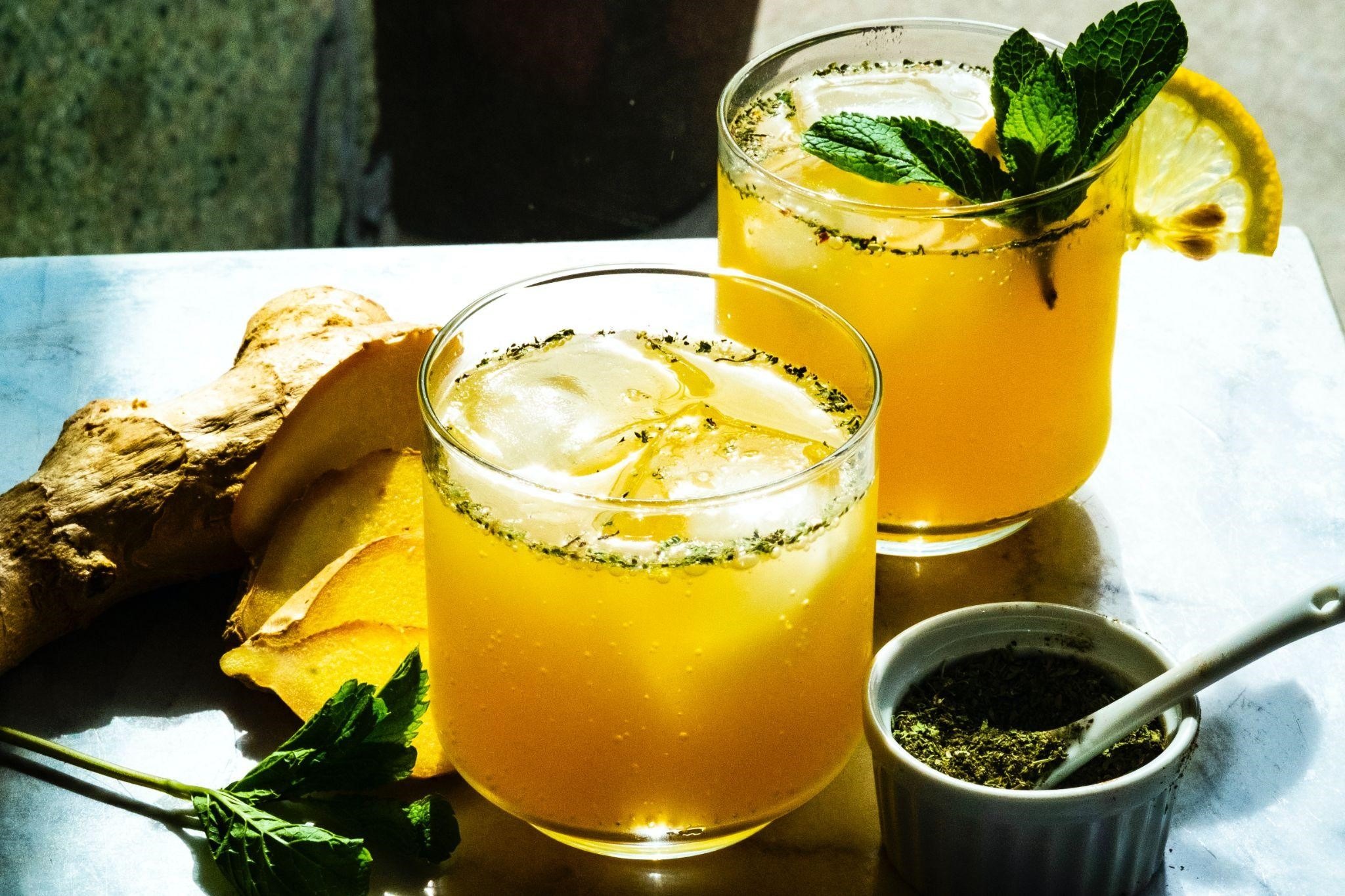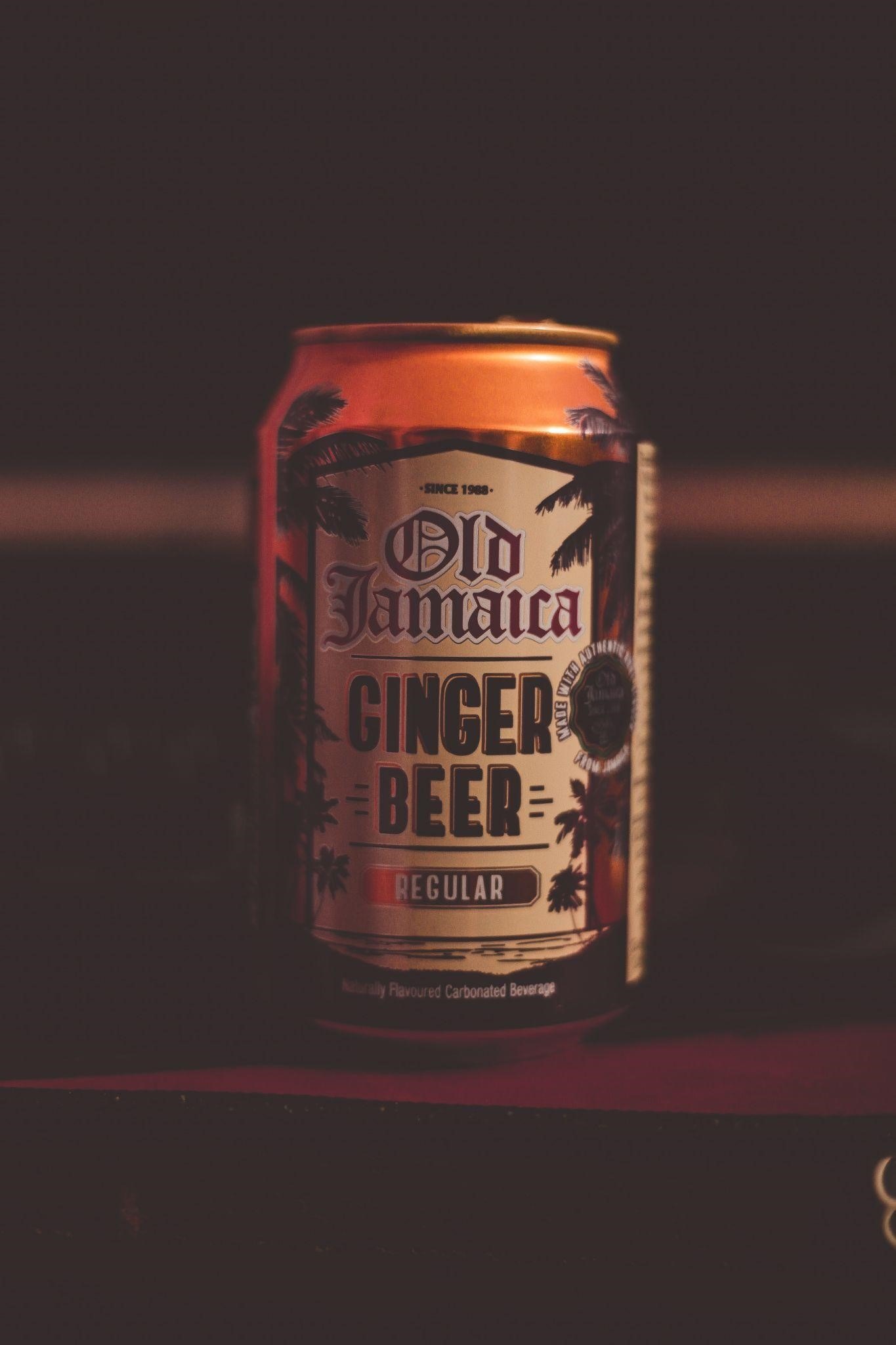Sweet and tangy with the warm, spicy flavours of ginger, ginger beer is a fantastic carbonated drink which is great for colds and flus. Ginger beer is a healthier alternative for other carbonated soft drinks, and makes for an excellent base for alcoholic drinks like Moscow Mule, Dark n’ Stormy, or a sangria.
The question many have is “does ginger beer go bad?” Technically, ginger beer doesn’t expire, but its taste and quality can deteriorate over time.
In this article, we discuss the origins, nature, and benefits of ginger beer and information on the correct way to store it. Read on to find out more.
What is Ginger Beer?
Traditional ginger beer is a sweetened carbonated beverage which is usually non-alcoholic. Historian Diana Schwahn writes that brewed ginger beer’s history dates back to 18th-century Yorkshire, England, where it was produced during the colonial spice trade with Asian countries and the sugar-producing islands of the Caribbean.
Historically, ginger beer was made with just four ingredients: prepared ginger spice, sugar, water, and yeast. These ingredients were naturally fermented to produce ginger beer. Presently, manufacturers combine ginger root, sugar, water, champagne yeast, an spices including nutmeg, cinnamon and cloves to produce ginger beer.
How is Ginger Beer Made?
Ginger beer is made using 5 ingredients: water, sugar, lemon juice and peels (optional), fresh ginger root, and ginger beer plant which is dry yeast or a symbiotic culture of bacteria and yeast (SCOBY).
The mixture is boiled, cooled down, then carbonated. This process gives ginger beer its bubbly, fizzy taste. The exact recipe and method of preparation may vary depending on the manufacturer and the brand. Although most store-bought ginger beer is made from natural ingredients, some may contain additional flavors, preservatives, and artificial sweeteners.
If you would like ginger beer without any added preservatives, opt for organic ginger beer or make your own at home.

What is The Shelf Life of Ginger Beer?
An unopened bottle of ginger beer can last you up to 6-9 months if stored in a cool place. Although, it tastes best when consumed within 5 months from the date of manufacture. If your ginger beer has been opened, refrigerate and consume it within 4 days.
As mentioned earlier, ginger beer doesn’t necessarily go bad. If that is so, why do they have expiration dates, you might wonder. That is because after a certain period of time, the quality and taste of ginger beer starts to degrade. So, even though it is still consumable, it will most likely have lost its fizziness and taste bad.
The shelf life of store-bought ginger beer depends on the brand and manufacturer, so its best to check the expiry date on the packaging. However, as a general rule, the longevity of ginger beer depends on two factors: storage conditions and whether it’s opened or unopened.
How to Store Ginger Beer?
Regardless of where you store your ginger beer, its quality will start to deteriorate over time. However, the shelf life can be extended if you store the ginger beer in a cool place. It is imperative that you avoid leaving the bottle at room temperature or in direct sunlight.
Since heat causes ginger beer to go bad faster than if it’s stored in a refrigerator or a cool cellar away from light and heat, store the beer in a refrigerator or a cool, dry place like your pantry, cellar, or cabinets to reduce the risk of bacterial growth.
If opened, store your ginger beer in the refrigerator only. Seal the bottle properly to slow down oxidation and elongate its shelf life.
Is it Safe to Drink Expired Ginger Beer?
Consuming stale ginger beer can cause stomach issues and even nausea, so be careful when consuming ginger beer that is past its expiration date.
Even though ginger beer doesn’t go bad (become inedible) easily, you still need to look out for warning signs if it’s past its expiration date, especially if it’s store-bought. Spoilt ginger beer will have a cloudy appearance and a sour, metallic taste. So, remember to give it a good whiff (and lightly taste it, if needed) before consumption.
Health Benefits of Ginger Beer
Apart from being a tasty drink, ginger beer also offers myriad health benefits. The key ingredient, ginger root has been consumed since ancient times for culinary and medicinal uses. It contains an active compound called gingerol which is packed with nutrients such as magnesium, manganese, potassium, copper, and vitamin B6. Here are some of the benefits offered by ginger beer:
Eases Nausea and Improves Digestion
According to studies conducted by the Memorial Sloan Kettering Cancer Center, ginger beer helps improve digestion by aiding food to pass smoothly through the digestive tract. Gingerol and shogaol relieve stomach irritation and other digestive problems. They also activate saliva and bile production.
Lowers Cancer Risk
Although more research is needed to provide conclusive information, some studies including the one conducted by the Cancer Prevention Research in 2013 and another laboratory study published by the Molecular Nutrition and Food Research in 2016 show that ginger killed human colorectal cancer cells and prevented the development of cancerous cells respectively.
Anti-Inflammatory Properties
Ginger beer can help with various types of body inflammation including arthritis, osteoarthritis, gastritis, esophagitis, and hepatitis. The active compounds present in ginger help reduce inflammation and also aid in pain relief.
Anti-Bacterial Benefits
Ginger beer helps soothe sore throats, colds and flus. A Nigerian study was conducted to compare the benefits of ginger versus antibiotics in helping heal various sicknesses. Ginger and ginger extract proved to be better at suppressing microbial activity than the antibiotics. It also contains piperine, a compound found in black pepper which helps destroy hamful bacteria.

Is Ginger Beer Alcoholic?
Ginger beer can be alcoholic or non-alcoholic depending on the preparation methods employed. Most commercially available ginger beer tend to be non-alcoholic as they are not fermented, but carbonated with pressurized carbon dioxide.
However, traditionally fermented ginger beer does tend to contain small amounts of alcohol because of the fermentation process. Interestingly, the earliest ginger beer had an alcohol content of 11%, making it a strong alcoholic drink.
What is The Difference Between Ginger Beer and Ginger Ale?
Although ginger beer and ginger ale are used interchangeably, they do have some differences which set them apart. Ginger beer is made by fermenting ginger and sugar with a few other ingredients, whereas ginger ale is a ginger-flavoured soft drink which is made by mixing soda water or club soda with artificial or real ginger syrup.
Since ginger beer is left to ferment with ginger, it has a punchier and spicier taste than ginger ale. Ginger ale is syrupy and much less spicy, but more carbonated than ginger beer.
Conclusion
To wrap things up, ginger beer doesn’t go bad easily, in that, it is still edible after its expiration date has passed. However, its taste, texture and quality will be compromised as it steadily deteriorates through oxidation and microbial development.
To prolong the shelf life of your ginger beer, store it in a cool, dark place or in a refrigerator if it’s still sealed. In the case of an opened bottle of ginger beer, reseal and store it in the refrigerator and consume it within 4 days. Cheers!
Hey welcome to my blog . I am a modern women who love to share any tips on lifestyle, health, travel. Hope you join me in this journey!

Speak Your Mind